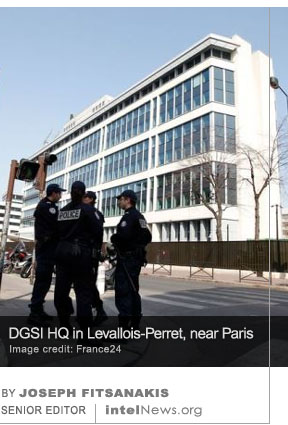French counterterrorism officer charged with selling forged documents online
January 23, 2020 Leave a comment
 An officer in France’s elite counterterrorism agency is to be tried along with four accomplices for selling forged identity documents and private data on the darknet. The case first emerged in 2018, after officers with France’s Central Office for the Prevention of Illegal Immigration (OCRIEST) detected a seller of high quality forged copies of official documents on the darknet.
An officer in France’s elite counterterrorism agency is to be tried along with four accomplices for selling forged identity documents and private data on the darknet. The case first emerged in 2018, after officers with France’s Central Office for the Prevention of Illegal Immigration (OCRIEST) detected a seller of high quality forged copies of official documents on the darknet.
The seller, who went by the nickname Haurus, offered French identification cards, drivers’ licenses, birth certificates and even bank documents, in exchange for between €100 and €300 ($110 and $330). The quality of the documents on sale was substantially higher than most forgeries sold on the darknet. According to French government investigators, the fake docments qualified as what anti-forgery experts call “the gold standard”. Haurus also sold private phone records and other information to track the whereabouts of individuals.
Government investigators eventually received an anonymous tip that helped identify Haurus. According to prosecutors, Haurus was an officer in the General Directorate for Internal Security (DGSI), which serves as France’s main counterterrorism agency. In accordance with France’s strict privacy laws, he has been identified only as “Cédric D.”, 33. According to Le Parisien newspaper, Cédric D. worked as a counterterrorism investigator specializing on jihadist terrorist networks.
Upon his arrest, Cédric D. led prosecutors to four more people, including a private investigator, all of whom were eventually apprehended. Cédric D. was kept in pre-trial detention for several months. He was released five months ago and remains under judicial supervision. The investigation into his activities has now concluded, and a trial is expected to commence soon in the Paris suburb of Nanterre.
► Author: Ian Allen | Date: 23 January 2020 | Permalink






